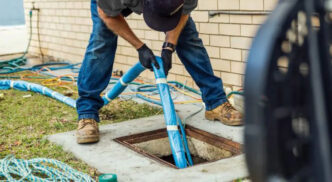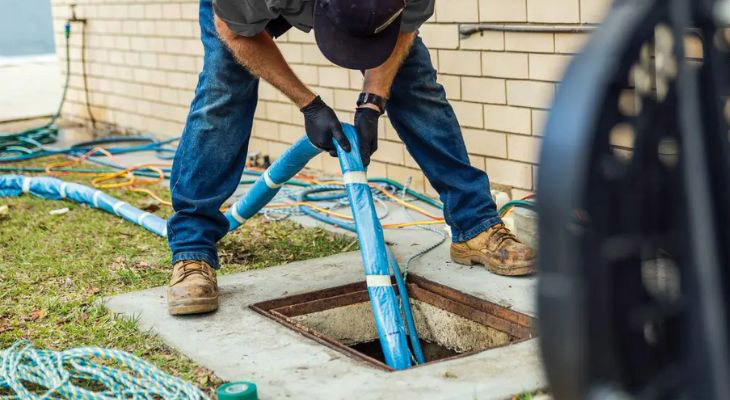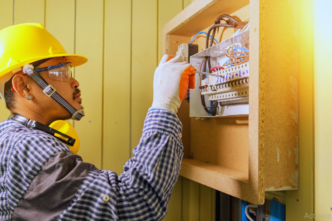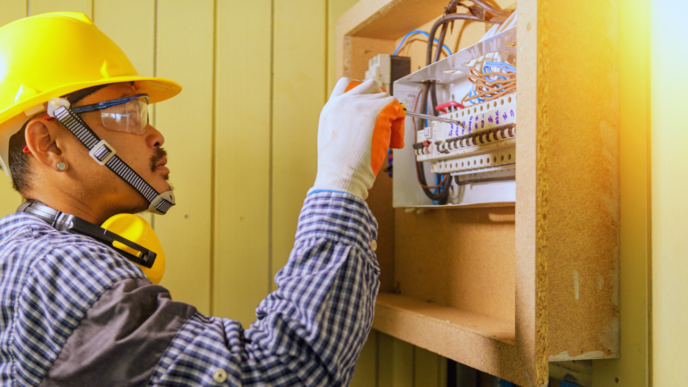Sewer pipes are an essential part of a home’s plumbing system, responsible for carrying wastewater safely away from the property. Over time, these pipes can deteriorate, become damaged, or develop clogs that simple repairs cannot fix. When that happens, replacement is often the best solution. In this guide, we will discuss the common reasons sewer pipes need to be replaced, the signs that indicate a problem, and why hiring a licensed plumber is essential for this critical job.
Common Reasons Sewer Pipes Need Replacement
1. Aging and Material Deterioration
Sewer pipes are built to last, but no material is indestructible. The lifespan of sewer pipes depends on the material used:
- Clay pipes: 50-60 years
- Cast iron pipes: 75-100 years
- Orangeburg pipes: 30-50 years (often much less due to their paper-based composition)
- PVC pipes: 100+ years (though other factors can shorten their lifespan)
Older homes with original sewer lines made from clay, cast iron, or Orangeburg are especially susceptible to deterioration. Cracks, corrosion, and collapse can occur over time, making replacement necessary.
2. Tree Root Intrusion
Tree roots naturally seek out moisture, making sewer lines a prime target. Roots can infiltrate pipes through tiny cracks or loose joints, causing blockages, leaks, and structural damage. Over time, tree roots can completely obstruct the flow of wastewater, requiring pipe replacement.
3. Frequent Blockages and Slow Drains
Recurring sewer backups, slow drainage, and gurgling sounds from toilets or drains can indicate significant pipe damage. If snaking or hydro jetting does not solve the problem, it may be due to collapsed or misaligned pipes that need to be replaced.
4. Ground Shifting and Soil Conditions
Changes in soil conditions, such as earthquakes, ground settling, or construction nearby, can shift or break sewer lines. Even minor shifts can cause misalignment or cracks that worsen over time, leading to leaks and blockages.
5. Pipe Bellies and Sags
A pipe belly occurs when a section of the sewer pipe sinks due to shifting soil, creating a low point where waste and water collect. Over time, this can lead to severe blockages and structural failures, often requiring a full replacement of the affected section.
6. Corrosion and Rust
Older metal pipes, especially cast iron, can corrode over time due to constant exposure to water and waste. This leads to thinning pipe walls, leaks, and eventual collapse. Corroded pipes may not be repairable, making replacement the only viable option.
7. Sewer Pipe Damage from External Forces
Heavy vehicle traffic over underground pipes, construction activities, or accidental excavation can physically damage sewer lines, leading to immediate failure. If the pipe is crushed or cracked beyond repair, it will need to be replaced.
Signs You Need Sewer Pipe Replacement
Recognizing the signs of a failing sewer pipe early can help prevent costly repairs and property damage. Look out for these warning signs:
- Frequent sewer backups or clogs
- Foul odors from drains or yard
- Multiple slow-draining fixtures
- Unusual lush patches of grass (indicating a leak underground)
- Foundation cracks or sinkholes near sewer lines
- Pest infestations due to sewage leaks
- Visible pipe corrosion or deterioration
Why a Licensed Plumber Should Handle Sewer Pipe Replacement
Sewer pipe replacement is not a DIY project. It involves excavation, specialized equipment, and compliance with local plumbing codes. Here’s why hiring a licensed plumber is essential:
1. Proper Diagnosis and Inspection
Licensed plumbers use advanced tools like sewer cameras to inspect the inside of pipes, accurately diagnosing issues and determining the best course of action.
2. Compliance with Plumbing Codes and Permits
Sewer line replacements often require permits and must meet local plumbing regulations. A licensed plumber ensures the work is done legally and safely, avoiding potential fines or required rework.
3. Professional Equipment and Techniques
Replacing a sewer line requires heavy machinery for excavation or trenchless repair methods such as pipe bursting or pipe lining. Professionals have the expertise to use these techniques effectively.
4. Preventing Further Damage
Improper sewer pipe installation can lead to future problems, including leaks, misalignment, or poor drainage. A licensed plumber ensures that the job is done correctly, preventing costly repairs down the road.
5. Safety and Health Considerations
Sewer line work involves exposure to hazardous waste, bacteria, and potentially harmful gases. A licensed plumber follows safety protocols to protect both themselves and your property from contamination.
6. Warranty and Insurance Coverage
Reputable plumbers provide warranties on their work, giving homeowners peace of mind. Additionally, hiring a licensed professional ensures liability coverage in case of accidental property damage.
Conclusion
Sewer pipes don’t last forever, and when they show signs of failure, replacement may be necessary to avoid major plumbing disasters. Whether due to age, tree root intrusion, corrosion, or external damage, sewer pipe issues should be addressed promptly. Hiring a licensed plumber ensures the job is done safely, legally, and efficiently, saving homeowners from costly mistakes and potential health hazards. If you suspect sewer pipe problems, consult a professional plumber for an inspection and expert guidance on the best course of action.














